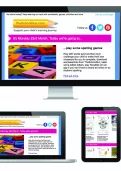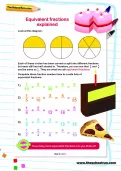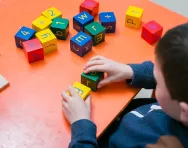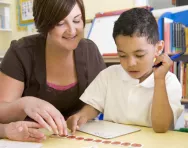Important update from TheSchoolRun
For the past 13 years, TheSchoolRun has been run by a small team of mums working from home, dedicated to providing quality educational resources to primary school parents. Unfortunately, rising supplier costs and falling revenue have made it impossible for us to continue operating, and we’ve had to make the difficult decision to close. The good news: We’ve arranged for another educational provider to take over many of our resources. These will be hosted on a new portal, where the content will be updated and expanded to support your child’s learning.
What this means for subscribers:
- Your subscription is still active, and for now, you can keep using the website as normal — just log in with your usual details to access all our articles and resources*.
- In a few months, all resources will move to the new portal. You’ll continue to have access there until your subscription ends. We’ll send you full details nearer the time.
- As a thank you for your support, we’ll also be sending you 16 primary school eBooks (worth £108.84) to download and keep.
A few changes to be aware of:
- The Learning Journey weekly email has ended, but your child’s plan will still be updated on your dashboard each Monday. Just log in to see the recommended worksheets.
- The 11+ weekly emails have now ended. We sent you all the remaining emails in the series at the end of March — please check your inbox (and spam folder) if you haven’t seen them. You can also follow the full programme here: 11+ Learning Journey.
If you have any questions, please contact us at [email protected]. Thank you for being part of our journey it’s been a privilege to support your family’s learning.
*If you need to reset your password, it will still work as usual. Please check your spam folder if the reset email doesn’t appear in your inbox.
Understanding ADHD in children

ADHD can have a huge impact on a child’s learning, causing educational, social, emotional and psychological problems. A high percentage of children with ADHD are pupils who are underachieving because of their disability.
What’s the problem?
ADHD in children causes numerous problems which include lack of concentration, failure to consider actions, low self esteem, depression, poor team working abilities, lack of organisational skills, and difficulty getting on with peers.


Boost your child's maths & English skills!
- Follow a weekly programme
- Maths & English resources
- Keeps your child's learning on track
Unfortunately though, children with ADHD often don’t get the additional support they need, mostly due to lack of funding. Parents have to be an advocate for their children as help and support is not always readily accessible. It can help to understand what should be happening in the classroom and at policy level within your child’s school so that you can fight for it.
ADHD in the classroom
Positive Relationships
Teachers should avoid focusing on failure and give as much praise as possible. They should have an understanding of ADHD in children and how it affects learning. Your child’s teacher should give frequent and immediate feedback and avoid embarrassing the child. Many children with ADHD have poor motivation therefore teachers need to work on this with the pupil.
Environmental Setting
This should be a safe, clean, organised and structured classroom. Children with ADHD are easily distracted therefore it is imperative to ensure that they are seated in the classroom near the front of the class and at a place which is free from distraction. For example, sitting near the window or door would not be helpful.
Behavioural strategies
Schools should have a behavioural policy in place so that the pupils and their parents know what is expected of them. They should work in partnership with parents and form a home to school communication (such as a school/home diary) to keep parents informed of their child’s progress at school. This will help highlight any problems before they become major concerns.
Because children with ADHD are easily distracted, where possible, lessons should include some fun elements to gain the child’s attention. It may help to give the child a responsibility, remembering to break tasks down into small stages and to repeat instructions slowly.
Interventions for children with ADHD
These may include:
- SEN support at school.
- Psychological/Psychiatric intervention. Medication can be given if recommended by a doctor.
- Parent training/counselling, if needed.
Who can help?
ADHD in children cannot be cured but it can be effectively controlled with the correct treatment, intervention and strategies. If you feel you need support in managing your child’s condition try speak to one – or several – of the following:
- SENCO School Nurse
- LEA – Special Educational Needs Department
- Educational Psychologist
- GP, Paediatrician, Child & Adolescent Psychologist/Psychiatrist
- Social Services
- ADHD Support Groups
Other resources:
ADDISS - The National Attention Deficit Disorder Information and Support Service








